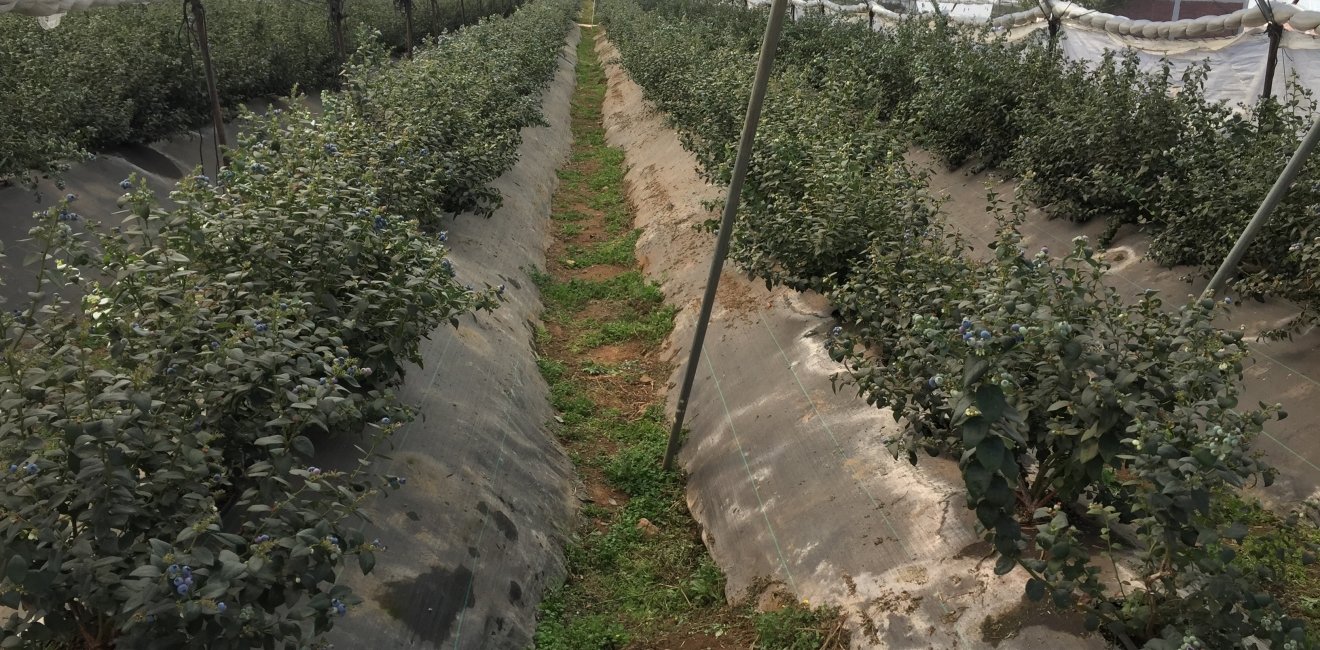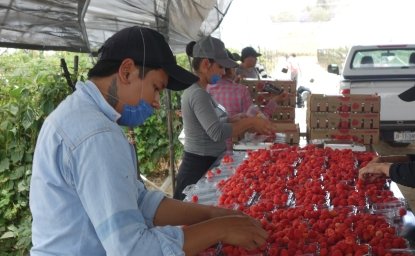Case Study: Sandy
This case study is a part of the Mexico Institute's project "Farm Labor and Mexico’s Export Produce Industry."
This case study is a part of the Mexico Institute's project "Farm Labor and Mexico’s Export Produce Industry."

Sandy is 26, and grew up with her grandparents and four paternal aunts in El Platanar, Tuxpan. Her parents worked in the fields, but it was her aunts who supported and raised her. Only three of her aunts work; the other does the housework and takes care of Sandy’s grandparents. The main source of income comes from one of the aunts, who is an elementary school teacher. Two other aunts are farm workers, one in the cherry tomato fields and the other in the same berry greenhouse where Sandy works. When she was little, Sandy went to school; she never worked outside the home. She helped her aunt with the housework, chores, and cooking. Sandy left high school after the third semester; her aunts wanted her to continue, but she decided to drop out because she did not like studying. At the age of 16, she went to work in the berry greenhouse on the Nuevo Poblado road in Tuxpan, which is owned by a large export firm. After six months, she was given an indefinite contract, and she has been working there now for 11 years.
Sandy is a single mother with two children, a six-year-old boy and a girl of 18 months. One of her aunts takes care of the children and the housework; in exchange, Sandy contributes money for food and when possible buys shoes, clothing, and other necessities. Since her second child was born, it has been difficult for her to cover the children’s expenses and contribute to the household. At the moment, she is earning 1,100 pesos a week, because the work she is doing is paid by the day and not by the amount of work done. She would like to be moved to working on the harvest, where she says the difference in pay is large: the workers there can earn up to 4,000 pesos a week. Given the economic pressure she feels, she has considered going to work in another field, but she hesitates to do so because of the benefits she gets with her current employer. She considers seniority and social security to be advantages that are not available in the tomato, cucumber, or jícama fields. She values having social security, especially because it provides her children with health care, but she does not consider her other benefits, such as Infonavit or retirement. Her current household expenses are the strongest economic pressure she feels.


The Mexico Institute seeks to improve understanding, communication, and cooperation between Mexico and the United States by promoting original research, encouraging public discussion, and proposing policy options for enhancing the bilateral relationship. A binational Advisory Board, chaired by Luis Téllez and Earl Anthony Wayne, oversees the work of the Mexico Institute. Read more



